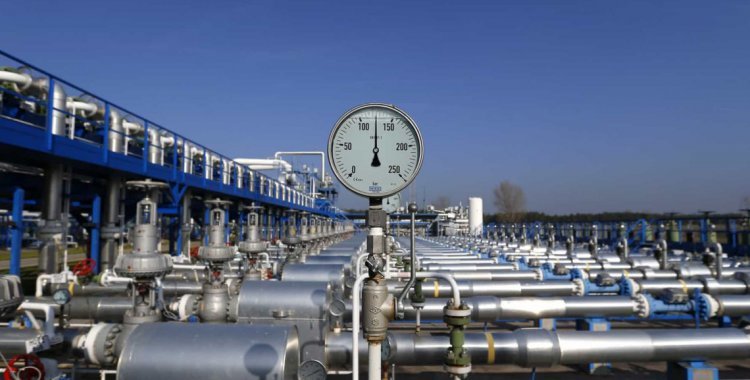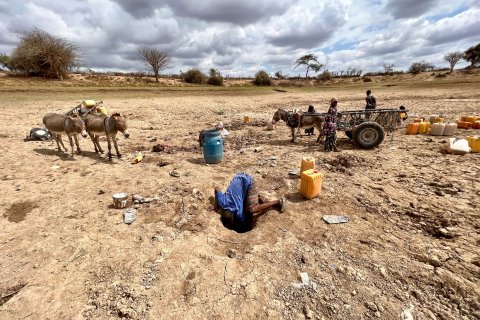In an interview with Lusa, Miguel Artacho, director of international conferences at Energy Capital & Power, which organizes the Angola Oil & Gas conference and exhibition, highlighted that energy security has gained crucial importance due to the war in Europe and advocated a fair energy transition for Africa, where "hunger kills more than global warming".
The 3rd edition of Angola Oil & Gas takes place between 29 November and 1 December and is organized by Energy Capital & Power, together with partners such as the Ministry of Mineral Resources, Oil and Gas (Mirempet), National Association of Oil, Gas and Biofuels (ANPG) and the Petroleum Derivatives Regulatory Institute, and brings to Luanda dozens of specialists, responsible for world multinationals and policy makers to debate the future of this industry.
The person in charge of the event highlighted that it takes place at a very important time for Angola, in a post-pandemic context and in which oil prices are on the rise, recalling that the energy sector, which represents more than 95 percent of exports, continues to be strategic for the Angolan economy, despite the executive's orientation towards economic diversification.
Miguel Artacho also stressed that the energy crisis in Europe and the geopolitical changes triggered by the war between Russia and Ukraine are forcing all countries to reassess their ambitious goals in the face of energy transition.
"Countries like Germany, which was highly dependent on Russian natural gas, and others like Eastern European countries, had to wake up to the need to diversify their natural gas sources due to the sanctions that were imposed," he noted.
This offers an opportunity not only for Angola, one of the largest oil producers in Sub-Saharan Africa, which also has major gas projects underway, such as Angola LNG, but also for other African producers such as Nigeria, Equatorial Guinea, Republic of Congo, who are seeing renewed interest in their ability to supply world markets with natural gas.
It will not be immediately, admits Miguel Artacho, as the Russian gas deficit is being compensated by the most advanced countries in terms of infrastructure and pipelines such as the USA, Qatar and Algeria.
"But that doesn't mean that other countries like Angola won't also benefit, since this situation will radically transform the possibility of these countries to industrialize. Even countries that didn't have LNG terminals, like Germany, drastically accelerate the pace of construction to implement these infrastructures and Angola is prepared to attract investment", considered the official, adding that "the energy sector in Sub-Saharan Africa and the natural gas industry, in particular, are at a very critical moment in which they can help the world to improve energy security".
Miguel Artacho pointed out some comparative advantages of Angola, including a pro-business government, political stability and security while other large producers had problems of 'force majeure' (extraordinary events that do not require compensation) or insecurity, such as kidnappings and robberies.
"Since the beginning, the Government of João Lourenço has promoted initiatives to reorganize the oil and gas sector and promote greater transparency and efficiency. I think there is enormous interest and potential for new investments, not only in oil and gas, but in the whole the energy sector, including renewables", he stressed, recalling that all the major operators in the sector operate in Angola, such as Chevron, Exxon, Total Energies, and the new Azule, a joint venture between the Italian Eni and the British BP, as well as other 'players' such as the Norwegian Equinor and, of course, the state oil company Sonangol.
As for the pace of the energy transition, he defended that "the Europeans and the Americans cannot be telling Africa what to do", criticizing some "hypocrisy".
"Many European countries are burning more coal than ever before. Germany has started a series of thermal power stations that use lignite, the most polluting type of coal," he said, adding that there can be no double standards.
"We have to have a flexible and equitable energy transition, that is, it is important that oil and gas producing countries switch to cleaner and more sustainable energy, but they must do so while addressing major problems such as poverty. Hunger kills more than global warming," he said, noting that the US and UK have industrialized at the expense of burning fossil fuels, as has China, one of the major contributors to greenhouse gas emissions.
Meanwhile, in Sub-Saharan Africa 600 million people lack access to energy.
"I'm not saying you should do the same thing, but it's important to realize that oil and gas technology has improved a lot, and that gas can be one of the most cost-efficient and least polluting energy sources," highlighted Miguel Artacho.
For the head of Angola Oil & Gas, African oil and gas producers are not in a position to supply their countries with only solar and wind energy: "It's not practical, it's impossible. But that doesn't mean there isn't room for it. There are excellent projects in the solar area in Angola and potential also in hydrogen, albeit at an early stage".
As for the business environment, he admitted that "Angola is not perfect", but it is on the right track.
"It's an emerging economy. There is corruption all over Sub-Saharan Africa, but there are efforts to continue to promote transparency, support economic stability and predictability, and continue to work with companies that are here and that are interested in long-term success." in this sector and who have the capital and knowledge that can help Angola to develop, integrating local content, promoting Angolanization. This is what needs to be done to reach its maximum potential", he concluded.







